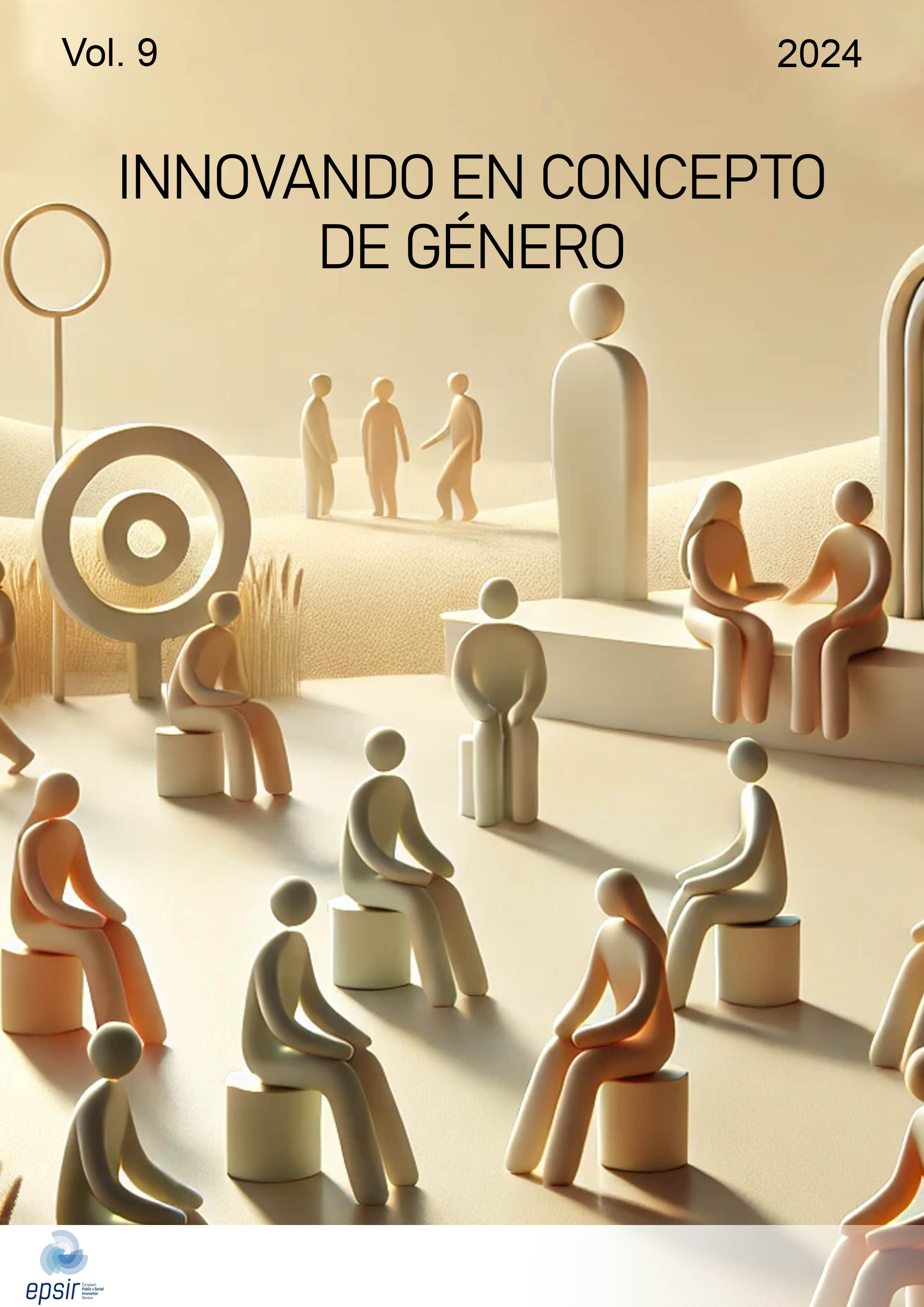Innovating in Gender Concept
DOI:
https://doi.org/10.31637/epsir-2024-1735Keywords:
Gender equality, Female entrepreneurship, Gender stereotypes, Inclusive leadership, Gender gaps in educationAbstract
This monograph focuses on the evolution of the concept of gender and current transformations in areas such as female participation in leadership, entrepreneurship, education and digital technologies. It addresses the structural barriers women face in leadership and entrepreneurship, and explores how inclusive policies can promote greater equity. It also examines gender gaps in STEM fields and how stereotypes in education perpetuate inequalities. Another key theme is the analysis of gendered leadership styles, looking at new forms of inclusive leadership. It delves into digital gender violence and the abuse of technologies such as deepfake, and how the gender perspective is integrated into disciplines such as architecture and urban planning. The monograph invites reflection on the changes in gender stereotypes and how they impact sectors historically dominated by men.
Downloads
References
Gómez López, M., Alfaro, E., & Vázquez, B. (2018). Seminario “Mujer y deporte” INEF-Madrid. El acceso de las mujeres al deporte profesional: el caso del fútbol. Jornadas nacionales (Madrid, 19 y 20 de abril de 2018). FEMERIS: Revista Multidisciplinar De Estudios De Género, 3(2), 178-180. https://doi.org/10.20318/femeris.2018.4325 DOI: https://doi.org/10.20318/femeris.2018.4325
Martín-Cárdaba, M. Ángel, Lafuente-Pérez, P., Durán-Vilches, M., & Solano-Altaba, M. (2024). Estereotipos de género y redes sociales: consumo de contenido generado por influencers entre los preadolescentes y adolescentes. Doxa Comunicación. Revista Interdisciplinar De Estudios De Comunicación Y Ciencias Sociales, (38). https://doi.org/10.31921/doxacom.n38a2034 DOI: https://doi.org/10.31921/doxacom.n38a2034
Soto, C. D. (2022). Mujeres en la alta dirección: Un estudio sobre el liderazgo transformacional y el fenómeno del impostor (Doctoral dissertation, Tesis Doctoral, Universidad Pontificia Comillas).Kabeer, N. (2015). Gender equality and women's empowerment: A critical review. Gender & Development, 23(2), 235-249. http://hdl.handle.net/11531/75756
Vara Horna, A. A., López-Odar, D. R., Alemán Gonzáles, L., Asencios González, Z., Bailón Miranda, Y., Bayona Ruíz, B., ... & Ventura Huamán, R. (2016). La violencia contra las mujeres en las universidades peruanas: Prevalencia e impacto en la productividad académica en las facultades de ciencias empresariales e ingeniería. GIZ & USMP. https://tinyurl.com/2bwaejqs
Verdugo-Castro, S., Sánchez-Gómez, M. C., García-Holgado, A., & García-Peñalvo, F. J. (2019). Revisión y estudio cualitativo sobre la brecha de género en el ámbito educativo STEM por la influencia de los estereotipos de género. Atas-Investigação Qualitativa em Ciências Sociais/Investigación Cualitativa en Ciencias Sociales, 3, 381-386. http://hdl.handle.net/10366/139736

Downloads
Published
How to Cite
Issue
Section
License
Copyright (c) 2024 Teresa Piñeiro Otero, Graciela Padilla Castillo , Nazaret Martínez Heredia

This work is licensed under a Creative Commons Attribution-NonCommercial-NoDerivatives 4.0 International License.
Authors who publish with this journal agree to the following terms:- Authors retain copyright and grant the journal right of first publication with the work simultaneously licensed under Creative Commons Non Commercial, No Derivatives Attribution 4.0. International (CC BY-NC-ND 4.0.), that allows others to share the work with an acknowledgement of the work's authorship and initial publication in this journal.
- Authors are able to enter into separate, additional contractual arrangements for the non-exclusive distribution of the journal's published version of the work (e.g., post it to an institutional repository or publish it in a book), with an acknowledgement of its initial publication in this journal.
- Authors are permitted and encouraged to post their work online (e.g., in institutional repositories or on their website) prior to and during the submission process, as it can lead to productive exchanges, as well as earlier and greater citation of published work (See The Effect of Open Access).


